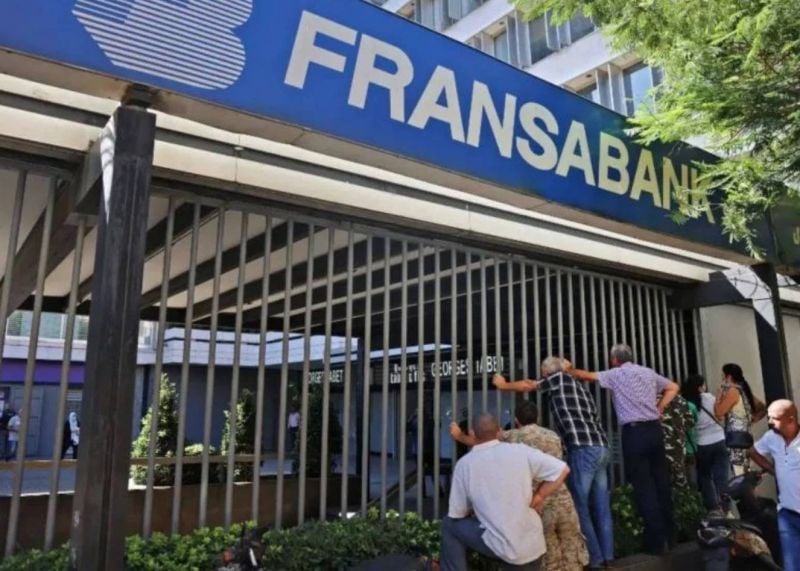
Fransabank in Hamra (Beirut). (Credit: Joseph Eid / AFP)
Three sources speaking on condition of anonymity told L’Orient-Le Jour that the management of at least two Lebanese banking institutions, Fransabank and BLC Bank (partly owned by Fransabank), requested that some of their employees stay at home.
An official from Fransabank who requested anonymity confirmed this information to L’Orient-Le Jour, specifying that the concerned employees will still receive their paychecks, as well as various benefits like school tuition and medical insurance, but not transportation allowances.
The source told L’Orient-Le Jour it hopes that this situation will be “temporary,” and justified that “a decline in activity” at its branches is behind this decision which aims to downsize the staff “on several lines of business.”
The same source believes that the bank has not “reduced its workforce more than any other Lebanese bank since the beginning of the crisis” which started more than three years ago.
According to the central bank’s latest figures, the number of bank branches in Lebanon decreased by 11.3 percent by the end of June 2022, falling to 902 branches from 1,017 just a year earlier. This indicates a 21 percent drop from June 2020, when Lebanon had 1,141 bank branches.
In mid-April, the Federation of Syndicates of Bank Employees severely criticized this decision, calling it “unacceptable at all levels” and promised “not to remain idle” in the face of this situation which concerns “a significant number of employees” and is tantamount to a “deferred dismissal.”
In a statement on Thursday, the confederation called on the employees of the Lebanese branch of Bank of Baghdad to go on strike Thursday, due to “the management’s negligence when it comes to salaries” amid the crisis in Lebanon. This came after the bank’s management was notified after a meeting held Wednesday, without any resolution to the problem.
It is no secret that the banking sector is going through a solvency crisis, the effects of which have been postponed since the end of 2019 by a series of restrictive measures targeting depositors. These measures were adopted unilaterally by the Association of Banks in Lebanon (ABL) and adjusted by the Banque du Liban (BDL), in connivance with authorities who remained silent throughout. The credit and investment activity of the sector has been completely wiped out and the main services provided by the banks are limited to withdrawals and payments within the limits of the restrictions imposed.
Organizations like the International Monetary Fund (IMF) and countries supporting Lebanon, like France, believe that the restructuring of the sector is inevitable. A draft law organizing the process is currently on the table in parliamentary committees and must be combined with another law governing the distribution of Lebanon’s financial losses, some of which the banks must assume notably by sacrificing their capital.
The confederation demands that the restructuring process not happen at the expense of employees who risk losing their jobs.
This article was originally published in French in L'Orient-Le Jour. Translation by Joelle El Khoury.